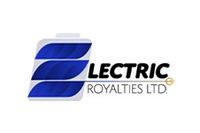The cobalt price hasn’t fully recovered since April 2008, when it last sat comfortably at nearly $55 per pound.
The cobalt price hasn’t fully recovered since April 2008, when it last sat comfortably at nearly $55 per pound. The critical metal has even seen lows of under $10 a pound as recently as February of this year, yet it seems to be climbing up again even if it’s a gradual process.
Currently, the metal is sitting at $10.75 per pound. Although it has zig-zagged up and down frequently throughout the year, it appears to be on the rise again, and some are questioning why its price isn’t higher.
Panasonic Corporation (TYO:6752) currently manufactures nickel-cobalt-aluminum cathodes in the batteries for Tesla’s (NASDAQ:TSLA) electric vehicles. They have even gone so far as to say that cobalt-based battery chemistries will be the standard for the foreseeable future.
So, with how significant cobalt is to batteries, why is the metal’s price still so low?
Factors to consider
The cobalt industry has been projected to take off as it is a significant component in lithium-ion batteries, yet the metal price has remained stagnant, trading somewhere between $10.20 and $11.20 since early 2016.
Of course, supply and demand are important factors to look at. Almost 60 percent of refined cobalt production comes in the form of chemicals and specialty projects rather than metal.
However, one thing to consider about the cobalt price is the availability of specific cobalt products, as some are more in demand than others. Guy Darby, director of cobalt trading company Darton Commodities, told Metal Bulletin (subscription) that the majority of cobalt demand is for its chemicals, not the metal.
“At the moment cobalt chemicals and intermediates are over-supplied, which means that those that sell metal into the chemical sector face competition,” he told Bulletin.
Cobalt price forecast
While some are asking why cobalt isn’t $20 per pound, others do see it rising, but not that high—yet.
A unnamed London-based trader told Metal Bulletin that,even though he is currently not buying in the market cobalt, he is concerned if he bought long term contracts to cover future demand, there are concerns his customer may delay requirements and he’ll be left with a large inventory of cobalt.
“Either way, we are not keen to sell at these numbers, as, although we don’t necessarily expect $20 soon, I fully expect it to rise to $15 within twelve months,” he said.
In order for cobalt prices to rise, potential growth in demand for electric vehicle batteries and strong current demand will eventually push the prices up.
Another unnamed source—a supplier and buyer of large volumes in Europe—said to the Bulletin certain producers have raised their prices, which has helped the trade get a greater share of the market overall.
“But these factors, although real, are not fully immediate. When they combine, which they likely will over the next year or so, then yes, the market will be at $20 per lb, but things need to work out first,” they said.
Why isn’t the cobalt price going up yet?
The Democratic Republic of Congo is responsible for approximately 60 percent of global supply of cobalt, and accounts for the vast majority of artisanal cobalt units that enter the supply chain. Earlier this year, a report called “This is What We Die for” released by Amnesty International disclosed that it found children as young as seven extracting for cobalt in the Congo.
In 2015, cobalt growth in the Congo slowed due to plummeting commodity prices as a result of economic slowdown in China. It’s estimate that copper production at the Chamber of Mines fell by 11.6 percent in this year’s first quarter, while cobalt fell by 16.3 percent.
As a result, a variety of mining firms closed, some permanently, with no signs of a rebound.
With over 3,000 jobs lost in the Congo and a price slump in Asia, cobalt prices reaching its expected heights may take some time.
Don’t forget to follow us @INN_Resource for real-time news updates!
Securities Disclosure: I, Jocelyn Aspa, hold no direct investment interest in any company mentioned in this article.

